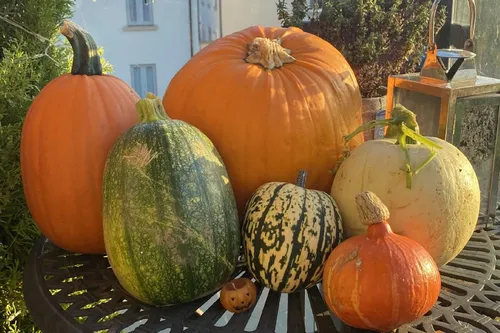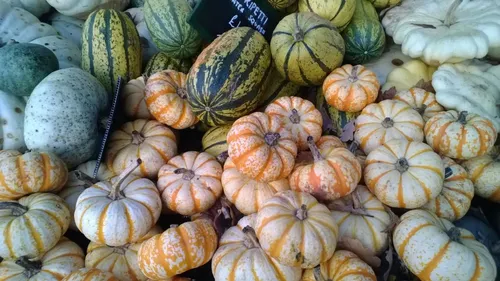Press Releases
A Gourd day for a pumpkin: the health benefits of this over-looked veg
Pumpkins make their appearance every Halloween, swiftly disappearing for the next year, but scientists believe we are over-looking their health benefits.
Researchers at the University of Warwick are keen to share the positive impact pumpkins can have on our health and wellbeing – which range from aiding weight loss, improving skin and even reducing risk of cancer.
Josh Gibbs, plant-based nutritionist researcher from Warwick Medical School, University of Warwick, said: “It’s easy to see pumpkins as a novelty vegetable, used more for seasonal decorations than in our diets. But there are plenty of reasons why we should be eating more of this vegetable, which is cheap, easy to grow and rich in antioxidants and vitamins.”
Alongside their nutritional benefits, pumpkins are good for the environment and affordable.
Professor Richard Napier, School of Life Sciences, University of Warwick, said: “Pumpkins can be grown across the UK and are suited to our climate – as long as they are planted out after all risk of frost is past and they are harvested before the start of autumn frosts. They are generally trouble free and fun to grow, but watch out for slugs!
“Pumpkins are bulky, and local production and short supply chains make sense to minimise heavy food miles and reduce dependence on imports from the EU. This is a healthy and affordable vegetable and a seasonal celebration of British-grown fresh produce. Let us learn to cook with pumpkins to avoid unnecessary food waste.”
Health benefits of pumpkin
1) Weight loss
“Since pumpkin is around 90% water, it is relatively low in calories compared to other vegetables.”, says Josh Gibbs. “The caloric content per 100g of pumpkin flesh rages from 15 kcal to 46 kcal. This makes it a great option to bulk up meals whilst keeping calories low – keeping you full and promoting weight loss.”
2) Vitamin A
Josh also shares the benefits of beta-carotene, which give pumpkins their distinct orange colour.
“The bright orange colour of pumpkin is a reflection of its most sought-after nutrient – beta-carotene. Beta-carotene is a carotenoid – a group of molecules that have antioxidant properties – that our bodies covert into vitamin A.
“Vitamin A is essential for eye health. High intake of beta-carotene reduces the risk of cataracts and macular degeneration. Vitamin A also improves the immune system and helps to keep your skin healthy. Make sure to combine pumpkin with a healthy source of fat like olive oil as vitamin A is fat soluble so is better absorbed in the presence of fat.”
3) Antioxidants
There are lots of antioxidants in pumpkins too, shares Josh Gibbs: “beta-carotene isn’t the only antioxidant found in pumpkin. It also contains high levels of lutein, lycopene, and vitamin C. High antioxidant intake is protective against cancers and cardiovascular diseases by reducing DNA damage and inflammation.”
4) Seeds
Josh is keen to remind us not to throw away one of the most beneficial parts of the pumpkin, which can help reduce risk of cancer and lower cholesterol. “Most of us throw out arguably the most nutritious part of pumpkin – the seeds! Pumpkin seeds are an excellent source of fibre, protein, unsaturated fatty acids, minerals like zinc, and vitamin E. Regular pumpkin seed consumption has been shown to lower bad cholesterol and is associated with lower risk of breast cancer. You can roast them in the oven and have them for a snack or sprinkle them into soup or on salads.”
A versatile vegetable
If you are not keen on the traditional options of pumpkin soup or pumpkin pie, there are other ways to incorporate it in your diet. “Try adding pumpkin to morning smoothies, or roast it in the oven for a sweet-flavoured side dish”, said Josh. “Pumpkin also makes the perfect ingredient for an autumn curry. Have pumpkin seeds with granola, porridge or in a flapjack. Cinnamon is a great way to enhance the flavour of this versatile vegetable.”

Notes to Editors
Media contact
University of Warwick press office contact:
Annie Slinn 07876876934
Communications Officer | Press & Media Relations | University of Warwick Email: annie.slinn@warwick.ac.uk
24 October 2023
